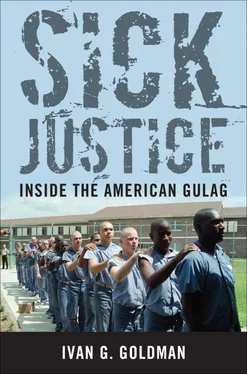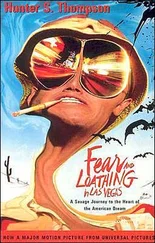In 2002 a jury convicted Connolly of racketeering, obstruction of justice, and lying to the FBI. Connolly’s boss, John Morris, testifying against him under the cloak of immunity, admitted that in exchange for thousands of dollars, he’d also relayed information, including the identity of an informant whom Bulger subsequently murdered, to Bulger and Flemmi. Thanks to his testimony, Morris received dispensation while Connolly got a ten-year prison sentence. Meanwhile, Bulger went underground in 1995, after Connolly warned him an indictment was imminent.
In 2008 another jury convicted Connolly of second-degree murder for telling Bulger that an accountant had agreed to testify against him. The accountant was subsequently murdered. Connolly was sentenced to another forty years. Bulger, among the FBI’s ten most wanted, was finally arrested in 2011, at the age of eighty-one, in Santa Monica, California, where he lived quietly with his girlfriend. This scandal that still won’t die is among the most embarrassing suffered by the FBI since its impervious oligarch, the late J. Edgar Hoover, was accused of cross-dressing and attending gay orgies.
The Bulger-Connolly connection is unusual in that we know about it at all. Most cop-informant relationships remain under the radar.
4
The War on Drugs (and Reason)
TWO YEARS BEFORE THE END OF HIS MANDATORY TEN-YEAR TERM FOR CRACK possession, James Allen was transferred from a private prison in Southern California to a federal penitentiary in Oregon so that he could participate in a drug program and knock a few months off his sentence. Clearly no threat to anyone, he was sent unescorted. Authorities handed him a bus ticket, and he traveled approximately a thousand miles on his own so that he could knock on the door of his new prison to be locked up again. Congressional crime busters had terminated parole in the federal system back in the eighties, so it was impossible to do the rational thing and let Allen go home. Absurdities like these transpire every day as various segments of the criminal justice system dutifully follow the path laid out for them by meticulous policies that allow no deviations. And nowhere is irrationality more evident than in the drug statutes.
People don’t become addicted to drugs because they’re living fine lives. Some drug users may be seeking thrills or just going along with the group, but in most cases they’re miserable. “The feeling they’re looking for is not to feel anything, which we would all like sometimes,” said Peggy Reavey, a drug counselor at an outpatient clinic in Wilmington, a gritty blue-collar neighborhood along the Los Angeles Harbor. 1Most of Reavey’s clients are sent by the court system, and many of them come from jail or prison. Jailing addicts in response to their quest for emotional escape is of questionable value, but under our system, jail is the knee-jerk response to drug use and abuse.
When Reavey worked for another rehabilitation clinic, she met an addict who spent twenty years on the street before she decided she had had enough and sought treatment. “This woman was living under a freeway,” recalled Reavey. “She had to get up every morning, bum a quarter, and call. That was the rule. And she did it every day until she got in. She had to wait seventy days.”
Although no definitive study has measured the frequency of what psychiatrists call dual-diagnosis behavior, it’s no secret that mentally ill folks commonly turn to street drugs to fight off the demons in their minds. These desperate attempts to self-medicate may give sufferers a recess, but eventually the drugs turn on them and inflict pain. And when authorities catch them, these drug users face legal punishment as well.
The cops arrested Allen, an ex-Crip and former heavyweight boxer who’s now a sheet-metal worker in Los Angeles, two years after he’d taken a job and gone straight, leaving drugs and gangs behind. He’d been ratted out by an active criminal who wangled himself a better deal from federal prosecutors for giving them a former criminal. 2Authorities never identified the informant who turned Allen in, but larger fish have long lists of minnows they can trade to police and prosecutors hungry to inflate their numbers. One of the bigger fallacies in the war on drugs is that it focuses on those at the top of the trading chain. Mostly it takes down the small fry, sometimes even reformed small fry like Allen, who was torn away from his job so he could serve time for dealing crack years earlier. 3
“They [law enforcement] don’t really stop to think about what this person is doing now,” said ex-convict Brenda Valencia. “So they don’t care if one person is dealing drugs and another is living honestly. They just want more bodies to throw in prison.” Meanwhile, she said, the hard-core dealers “know how the system works. They cooperate and then they move on somewhere else to do it all over again. They’re gaming the system.” 4Sometimes they bargain their way out of a long stretch by agreeing to turn over cash proceeds from sales, a circumstance so common it has a name—cash-register justice. Once again, the bigger the dealers, the more they have to trade.
TELL-ALL WARRIORS
In 1993 I was introduced to a retired treasury agent who’d spent most of his career chasing drug offenders and ultimately concluded that it was a waste of time, that a “war” originally intended to prevent drug use only exacerbated it. This was shortly after I’d written a book with ex-LAPD detective Mike Rothmiller that exposed an elaborate police network that spied on politicians and celebrities not suspected of any crimes. The ex-T-man wanted me to help him write a book about the irrational, failed war on drugs from the perspective of a soldier down in the trenches who’d seen its pointlessness from the inside. The retired agent felt used and betrayed. He’d devoted all those working years to a giant snipe hunt, and he was indignantly angry. When my agent sounded out publishers, they all gave the same answer: The country was teeming with disgusted ex-combatants seeking to expose the war on drugs as a sham and a scam. Several had already produced books, some of them quite good, but to no effect. This was a war without end that proceeds past all barriers, past reason, logic, experience, science, and humanitarian impulse. Publishers told my agent that they were weary of it.
Despite massive, irrefutable evidence that the drug war is counterproductive—that even arresting a kingpin merely creates a job opening for another kingpin—exposing these facts never seems to affect policy. Instead there’s a never-ending campaign to choke off the oxygen of the drug trade at every conceivable phase, to seize suppliers, users, and the drugs themselves no matter how quickly they’re all replicated. The more this policy fails, the more resources it devours. Over the years it’s spawned a vast, powerful industry that thrives on a dysfunctional strategy. Minus the nukes, it works similarly to the military-industrial complex, which remains geared up to fight multiple wars even though it can’t name any formidable enemies.
“NO HARM TO OTHERS”
In June 2011 the Global Commission on Drug Policy, a high-powered group of former world leaders, including former United Nations (UN) secretary-general Kofi Annan and past presidents of Mexico, Brazil, and Colombia, issued a report that concluded the global war on drugs has been a disastrous failure that foments violence and doesn’t curtail drug use. The group urged an end to “criminalization, marginalization and stigmatization of people who use drugs but do no harm to others.” The report noted that in the ten years after 1998, despite a massive escalation of the drug war, global consumption of opiates had increased 34.5 percent, cocaine 27 percent, and cannabis 8.5 percent. 5The Obama administration, knowing the report was in the works, issued a prepared dismissal. “Making drugs more available—as this report suggests—will make it harder to keep our communities healthy and safe,” said Rafael Lemaitre, spokesman for the White House Office of National Drug Control Policy. 6If, as Socrates said at his trial, the unexamined life is not worth living, what are we to conclude about a policy that, despite having been proved a failure after endless examination and reexamination, is doggedly pursued by those in power?
Читать дальше












